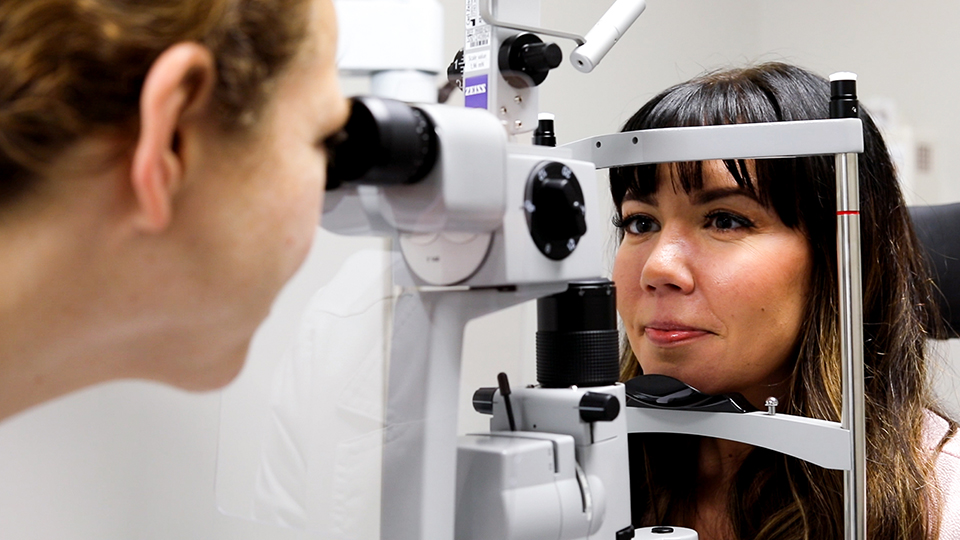General Eye Care
Eye exams are essential in maintaining eye health.
Eyecon Optical’s routine & comprehensive exams help to determine visual acuity as well as your prescription needs over time and serve as the best preventative measure in the early detection of eye conditions and diseases that can threaten your vision later in life.
What to Expect
Eyecon’s routine eye exams are straightforward and painless. During your exam your doctor will perform a variety of tests to determine your visual acuity and pupils’ responsiveness. They can then determine if you need glasses, contacts, or need to make any changes to your existing prescription.
If you already wear glasses or contacts make sure to bring them with you to your appointment in case adjustments need to be made.
Comprehensive exams are a little more in-depth, but just as easy as routine exams. Your doctor will conduct tests to check for any refractive errors or abnormalities regarding your cornea, iris, lens, and the back of your eye. You will also be asked if you would like to have your pupils dilated so your doctor can examine your eye more fully.
How Often Should I Get an Exam?
Eyecon, as well as organizations like The Centers for Disease Control and Prevention (CDC) and American Optometric Association, recommend that individuals get an eye exam at least once a year, especially if you have any level of vision or eye problems. These visits could be more frequent for individuals with other advanced eye conditions or diabetes.
Why Should I Get Regular Eye Exams?
Eye exams are meant to help you and your doctor monitor your changing vision and maintain your overall eye health.
Additionally, health conditions not related to the eyes can be detected by your ophthalmologist through eye exams. Because your eyes contain blood vessels, nerves, and connective tissues that go throughout your body, your doctor is given a literal window into your overall health. Some issues that can potentially be detected through regular eye exams include:
- Diabetes
High blood pressure or cholesterol
Thyroid problems


